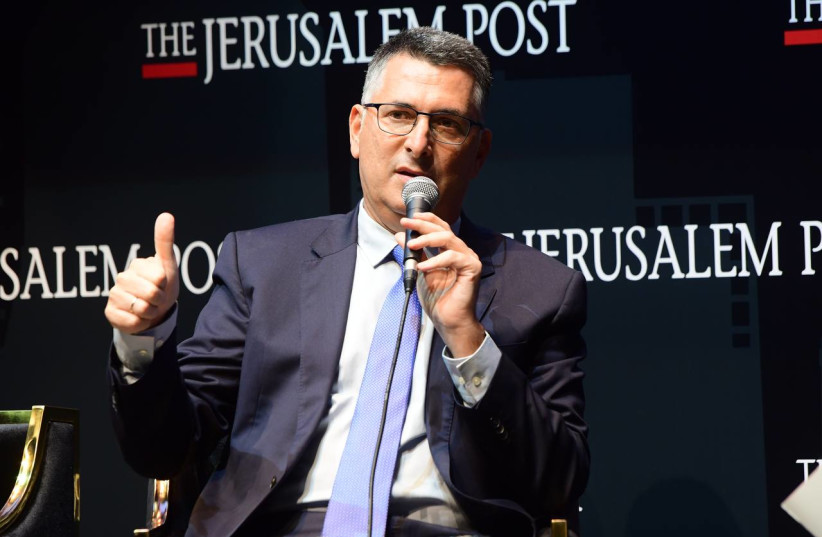The race to replace Avichai Mandelblit as attorney-general entered the final stretch on Sunday with the Judicial Selection Committee narrowing the list to three candidates for Justice Minister Gideon Sa’ar and the cabinet to choose from.
The three candidates are former top ministry official Gali Baharav-Miara, Deputy Attorney-General for International Affairs Roy Schondorf and lawyer Itai Ofir.
Normally, the prime minister informally has de facto veto power, but with the split powers within the coalition, Sa’ar’s preference could be even more decisive than the formal power he is already given as the intermediary between the committee and the cabinet.
For an extended period, Sa’ar’s preference has reportedly been Baharav-Miara. In a surprise, Deputy Attorney-General Raz Nizri, who had been at the top of the list recommended by Sa’ar along with Baharav-Miara on December 13, was left off the final list.
Along with those candidates, others who made it to the second to last round included District Court Judge Michal Agmon-Gonen, Prof. Ariel Bendor, Dr. Aviad Bakshi, former Knesset chief legal adviser Eyal Yinon and Hebrew University of Jerusalem Rector Barak Medina.

In his six years in office, Mandelblit had a decisive impact. He indicted former prime minister Benjamin Netanyahu, Shas party leader Arye Deri, former UTJ leader and current MK Ya’acov Litzman. He influenced coronavirus policy, the Jewish Nation-State Law, the settlements, religion-and-state issues, the rule of law in general and handled war-crimes charges from the International Criminal Court.
Former conservative chief justice Asher Grunis chairs the committee, which also includes conservative New Hope MK Zvi Hauser and moderate conservative and former justice minister Dan Meridor.
The other two members on the panel are Israel Bar Association representative Tami Olman and academic representative Ron Shapira. Olman is not known as being particularly conservative and has battled to defend the judiciary from attacks by former justice minister Amir Ohana.
To be recommended to Sa’ar, a candidate must receive the votes of four out of five committee members, with the ideal situation being that the committee sends two or three names to Sa’ar, who then recommends one to the cabinet.
However, in some years, the committee could not get four members to support any name, in which case the justice minister can have more room to maneuver.
It is also possible there could be an extended delay.
Sa’ar appointed State Attorney Amit Aisman, who is not a candidate to receive the role permanently, on a temporary basis to fill Mandelblit’s shoes until March 1.
A similar dynamic played out when there was a deadlock on Supreme Court appointments, with a temporary appointment used to delay the issue for months.
Also, Sa’ar is seeking to split the powers of the attorney-general into two separate positions, something that most or all of the candidates are expected to agree to even if the Knesset itself does not pass new legislation.
Former state attorney Shai Nitzan has suggested multiple models in which the attorney-general could voluntarily yield some of his powers of prosecuting top ministers to the state attorney without formal legislation.
That the candidates lack criminal prosecution experience could also help pave the way for Sa’ar’s goal of splitting the position.
It is unclear if Sa’ar has the votes in the Knesset to split the position since virtually all former attorneys-general, the Supreme Court and left-wing parties in the coalition are expected to oppose such a split.
Sa’ar did say in mid-December that he had the full support of Prime Minister Naftali Bennett.
In mid-December, Labor Party leader Merav Michaeli said she would continue to oppose any legislation for such a split in the Knesset. However, she said she would not comment on the candidates at this stage, which essentially means she is not exercising any public pressure on the issue.
Baharav-Miara is a private-sector lawyer at Tadmor-Levy & Co., but previously she was the head of Tel Aviv’s Civil Division and she continues to hold roles involved in public policy issues.
Schondorf has been the deputy attorney-general for international affairs since 2013, advising the government on public international law, including treaty negotiations and international litigation.
Before working at the Attorney-General’s Office, Schondorf was the director of the Department of Special International Affairs for the State Attorney’s Office since 2009 and was a senior official in the IDF’s International Law Division.
He has been responsible for building up the ministry’s international law units following the 2009 Goldstone Report to handle the increasing threats of war-crimes charges from the International Criminal Court and lawsuits from foreign countries.
Meanwhile, Mandelblit took not-so-veiled shots at Ohana, currently a Likud MK, and others in the political opposition who have attacked him for years as undermining the sovereign “governing powers” of the legislative and executive branches in instances where he opposed government policy as illegal or indicted ministers.
In his parting speech, Mandelblit told the cabinet: “There were those who tried to present their harm to the rule of law as an ideological path, under the slogan ‘governing powers,’ but time after time we saw the truth was that underneath everything was the desire to advance personal interests, gravely harming duty to the public.”
Mandelblit was praised by Bennett, Sa’ar, Defense Minister Benny Gantz and other coalition members. He was attacked by some members of the opposition, including Religious Zionist Party MK Itamar Ben-Gvir and Likud MK David Amsalem.
